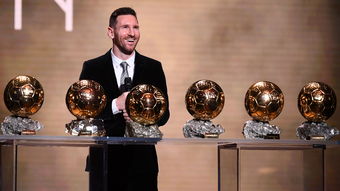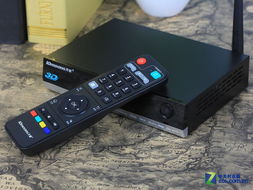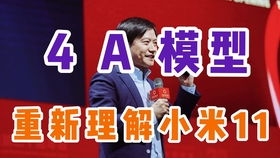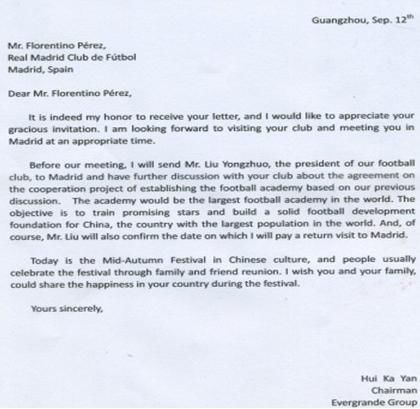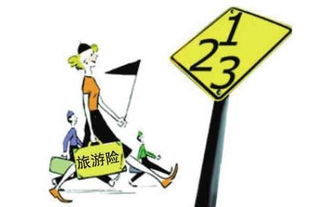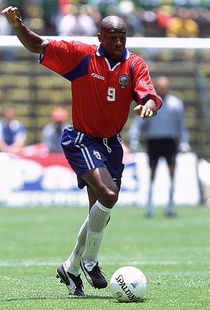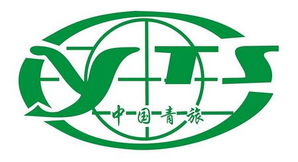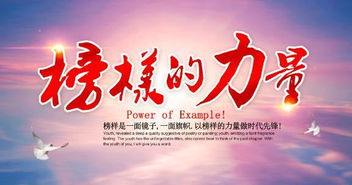如何评价艾玛沃特森的女权事业(艾玛沃特森说法语)
- 明星八卦
- 2023-01-17 05:45:16
- -
我觉得愿意为女权代言本身就是个有风险的事情,尤其这几天又爆出来的艳照门风波,让人觉得这世界对于大胆发声且敢于展示自己的女性充满恶意,除非你是贞女楷模,简直无法躲藏。
有人说艾玛演技不佳,女权思想也不成熟。但人是在成长的,只要真的在努力,成长中自然会有进步。
观众总是难以取悦的,找个漂亮的,会有人说演技不行,找个不好看的,会有人说女权丑。你为女权发声,就会有人质问那你为何不为女权做事。
很多人讨厌看起来有心机有目的有企图的女性,尽管她们也确实很努力很进取。
总之,艾玛去联合国演讲,比金星给女人洗脑好。你看金星就不会为女权代言,也不会为LGBT代言。明星用自己的影响力为女性讲几句话,肯定能对观众起到正面作用,我们不能苛求她的认识一下达到学者水平。她有女权意识,就应该鼓励,这不比某S那类女明星代表的“要么瘦要么死”之类的价值观对女性更友好一点?
campaign called “HeForShe.”I am reaching out to you because I need your help.
We want to end gender inequality—and to do this we need everyone involved. This
is the first campaign of its kind at the UN: we want to try and galvanize as
many men and boys as possible to be advocates for gender equality. And we don’t
just want to talk about it, but make sure it is tangible.
2. I was appointed as Goodwill
Ambassador for UN Women 6 months ago. The more I spoke about feminism, the more
I realized that fighting for women’s rights has too often become synonymous
with man-hating. If there is one thing I know for certain it is that this has
to stop. For the record, feminism by definition is the belief that men and
women should have equal rights and opportunities. It is the theory of the
political, economic and social equality of the sexes.
3.
I started questioning
gender-based assumptions a long time ago. When I was at eight I was confused at
being called “bossy,” because I wanted to direct the plays we would put on for
our parents—but the boys were not. When at 14, I started being sexualized by
certain elements of the media. When at 15, my girlfriends started dropping out
of their beloved sports teams because they didn’t want to appear “muscly.” When
at 18, my male friends were unable to express their feelings.
1. I decided I was a feminist and
this seemed uncomplicated to me. But my recent research has shown me that
feminism has become an unpopular word. Women are choosing not to identify as
feminists. Apparently I am among the ranks of women whose expressions are seen
as too strong, too aggressive, isolating, anti-men, unattractive even.
2. Why has the word become such an
uncomfortable one? I am from Britainand I think it is right I am paid the same as my male counterparts. I think it
is right that I should be able to make decisions about my own body. I think it
is right that women be involved on my behalf in the policies and decisions that
will affect my life. I think it is right that socially, I am afforded the same
respect as men.
3. But sadly, I can say that there
is no one country in the world where all women can expect to see these rights.
No country in the world can yet say that they have achieved gender equality.
These rights I considered to be human rights.
4.
But I am one of the lucky ones.
My life is a sheer privilege because my parents didn’t love me less because I
was born a daughter. My school did not limit me because I was a girl. My
mentors didn’t assume that I would go less far because I might give birth to a
child one day. These influences, with the gender equality ambassadors, made me
who I am today. They may not know it but they are the inadvertent feminists who
are changing the world today. We need more of those.
1. And if you still hate the
word—it’s not the word that is important. It’s the idea and the ambition behind
because not all women have been afforded the same rights that I have. In fact,
statistically, very few have been.
2. In 1997, Hillary Clinton made a
famous speech inBeijingabout women’s rights. Sadly, many of the things that she wanted to change are
still true today. What struck me the most was that less than 30% of the
audience was male. How can we effect change in the world when only half of it
is invited or felt welcomed to participate in the conversation?
3. Men, I would like to take this
opportunity to extend your formal invitation. Gender equality is your issue,
too. Because to date, I’ve seen my father’s role as a parent being valued less
by society despite my needing his presence as a child as much as my mother’s.
I’ve seen young men suffering from mental illness, unable to ask for help for
fear it would make them less of a man. In fact, in theUK, suicide is
the biggest killer of men between 20 to 49, eclipsing road accidents, cancer
and coronary heart disease. I’ve seen men made fragile and insecure by a
distorted sense of what constitutes male success. Men don’t have the benefits
of equality, either.
4. We don’t often talk about men
being imprisoned by gender stereotypes but I can see that they are. And when
they are free, things will change for women as a natural consequence. If men
don’t have to be aggressive in order to be accepted, women won’t feel compelled
to be submissive. If men don’t have to control, women won’t have to be
controlled
5. Both men and women should feel
free to be sensitive. Both men and women should feel free to be strong. It is
time that we all perceive gender as a spectrum instead of two sets of opposing
ideals. If we stop defining each other by what we are not and start defining
ourselves by who we are, we can all be freer and this is what HeForShe is
about. It’s about freedom. I want men to take up this mantle so that their
daughters, sisters and mothers can be free from prejudice but also so that
their sons have permission to be vulnerable and human too, reclaim those parts
of themselves they abandoned and in doing so, be a more true and complete
version of themselves.
6. You might be thinking: who is
this Harry Potter girl? And what is she doing speaking at the UN? And it’s
really a good question. I’ve been asking myself the same thing. All I know is
that I care about this problem and I want to make it better. And having seen
what I’ve seen and given the chance, I feel it is my responsibility to say
something. Statesman Edmund Burke said “all that is need for the forces of evil
to triumph is for good men and women to do nothing.”
7. In my nervousness for this
speech and in my moments of doubt, I’ve told myself firmly: if not me, who? If
not now, when? If you have similar doubts when opportunity are presented to
you, I hope those words will be helpful. Because the reality is that if we do
nothing, it will take 75 years or for me nearly 100 before women can expect to
be paid the same as men for the same work. 15.5 million girls will be married
in the next 16 years as children. And at current rates, it won’t be until 2086
before all rural African girls can have a secondary education.
8. If you believe in equality, you
might be one of the inadvertent feminists that I spoke of earlier and for this
I applaud you. We are struggling for a uniting world but the good news is we
have a uniting movement. It is called HeForShe. I am inviting you to step
forward, to be seen and to ask yourself: if not me, who; if not now, when.
Thank you very very much. 什么时候的事 。 演讲全文:
Today we are launching a campaign HeForShe. I am reaching out to you because we need your help. We must try to mobilize as many men and boys as possible to be advocates for change. We don’t just want to talk about it. We want to try and make sure it’s tangible.
I was appointed as Goodwill Ambassador for UN Women 6 months ago.The more I spoke about feminism, the more I realized that fighting for women’s rights has too often become synonymous with man-hating. If there is one thing I know for certain is that this has to stop. For the record, feminism by definition is the belief that men and women should have equal rights and opportunities. It is the theory of political, economic and social equality of the sexes.
When I was 8, I was called bossy because I wanted to direct a play we would put on for our parents. When at 14, I started to be sexualized by certain elements of the media. At 15, my girlfriends started dropping out of sports teams because they didn’t want to appear masculine. At 18, my male friends were unable to express their feelings.I decided that I was a feminist. This seemed uncomplicated to me. But my recent research has shown me that feminism has become an unpopular word. Women are choosing not to identify as feminists. Apparently, [women’s expression is] seen as too strong, too aggressive, isolating, and anti-men, unattractive even.
Why has the word become such an uncomfortable one? I think it is right I am paid the same as my male counterparts. I think it is right that I should be able to make decisions about my own body. I think it is right that women be involved on my behalf in the policies and decisions that will affect my life. I think it is right that socially, I am afforded the same respect as men.
But sadly, I can say that there is no one country in the world where all women can expect to see these rights. No country in the world can yet say that they achieved gender equality. These rights are considered to be human rights but I am one of the lucky ones.
My life is a sheer privilege because my parents didn’t love me less because I was born a daughter. My school did not limit me because I was a girl. My mentors didn*t assume that I would go less far because I might give birth to a child one day. These influences are the gender equality ambassadors that made me who I am today. They may not know it but they are the inadvertent feminists needed in the world today. We need more of those.
If you still hate the word, it is not the word that is important. It is the idea and the ambition behind it because not all women have received the same rights I have. In fact, statistically, very few have.
In 1997, Hillary Clinton made a famous speech in Beijing about women’s rights. Sadly, many of the things that she wanted to change are still true today. What struck me the most was that less than 30% of the audience were male. How can we effect change in the world when only half of it is invited or being welcomed to participate in the conversation?
Men, I would like to give this opportunity to extend your formal invitation. Gender equality is your issue, too. Because to date, I’ve seen my father’s role as a parent being valued less by society. I’ve seen young men suffering from mental illness, unable to ask for help for fear it would make them less of a man. In fact, in the UK, suicide is the biggest killer of men between 20 to 49, eclipsing road accidents, cancer and heart disease. I’ve seen men fragile and insecure by what constitutes male success. Men don’t have the benefits of equality, either.
We don’t often talk about men being imprisoned by gender stereotypes but I can see that they are. When they are free, things will change for women as a natural consequence. If men don’t have to be aggressive in order to be accepted, women won’t feel compelled to be submissive. If men don’t have to control, women won’t have to be controlled.
Both men and women should feel free to be sensitive. Both men and women should feel free to be strong. It is time that we all see gender as a spectrum instead of two sets of opposing ideals. We should stop defining each other by what we are not and start defining ourselves by who we are. We can all be freer and this is what HeForShe is about. It’s about freedom. I want men to take up this mantle so that their daughters, sisters and mothers can be free from prejudice but also so that their sons have permission to be vulnerable and human too, reclaim parts of themselves they abandoned and in doing so, be a more true and complete version of themselves.
You might think: who is this Harry Potter girl? What is she doing at the UN? I’ve been asking myself the same thing. All I know is that I care about this problem and I want to make it better. And having seen what I’ve seen and given the chance, I feel it is my responsibility to say something. Statesman Edmund Burke said all that is need for the forces of evil to triumph is for good men and women to do nothing.
In my nervousness for this speech and in my moments of doubt, I told myself firmly: if not me, who? If not now, when? If you cast doubts when opportunity is presented to you, I hope those words will be helpful. Because the reality is if we do nothing, it will take 75 years or maybe 100 before women can expect to be paid the same as men for the same work. 15.5 million girls will be married in the next 16 years as children. And at current rates, it won*t be until 2086 before all rural African girls can have a secondary education.
If you believe in equality, you might be one of the inadvertent feminists I spoke of earlier and for this I appraud you. We must strive for a united world but the good news is we have a platform. It is called HeForShe.
I invite you to step forward, to be seen and I ask yourself: if not me, who? If not now, when? Thank you.
希望可以帮到你
本文由作者笔名:AlfredT0921 于 2023-01-17 05:45:16发表在本站,原创文章,禁止转载,文章内容仅供娱乐参考,不能盲信。
本文链接:https://www.e-8.com.cn/mx-74601.html
 AlfredT0921
AlfredT0921
